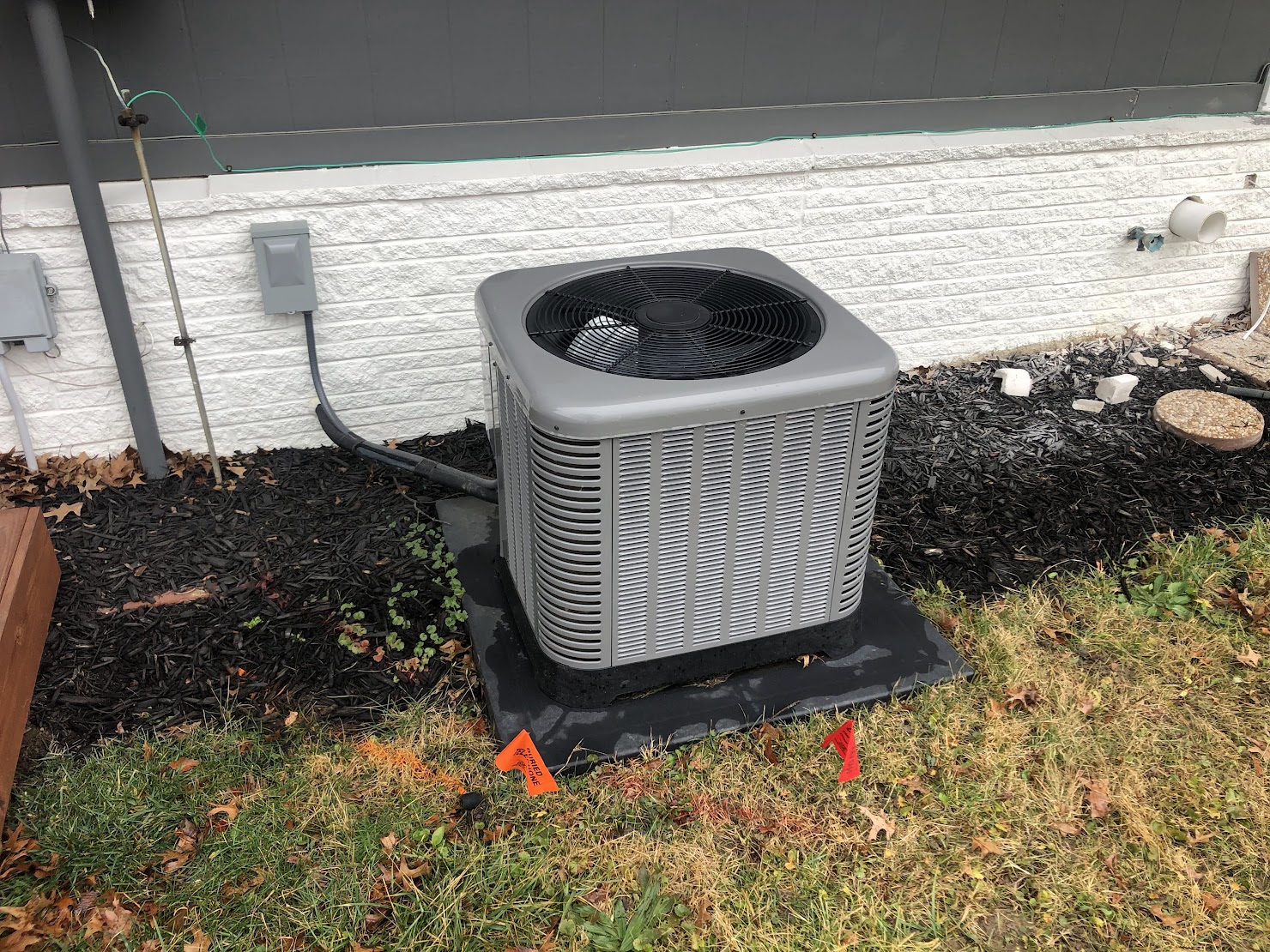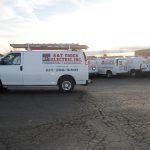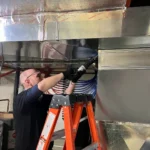Heating, ventilation, and air conditioning (HVAC) systems are essential for maintaining comfortable and healthy indoor environments. However, the needs of a home and a commercial space differ significantly, leading to distinct differences in the design, functionality, and maintenance of their respective HVAC systems. Understanding the difference between residential and commercial HVAC systems can help you make informed decisions about installations, upgrades, or repairs.
Key Differences Between Residential and Commercial HVAC Systems
While both systems serve the same fundamental purpose of regulating indoor temperature and air quality, they differ in size, complexity, and application. Below is a detailed comparison
1. System Size and Capacity
Residential HVAC Systems
- Designed to cool and heat smaller spaces such as single-family homes or apartments.
- Typically range between 2 to 5 tons in cooling capacity, sufficient for an average-sized home.
Commercial HVAC Systems
- Built to handle larger spaces like office buildings, retail stores, or warehouses.
- Can range from 10 to 50 tons or more, depending on the building size and usage.
Key Difference:
Commercial systems are significantly larger and more powerful to accommodate greater square footage and diverse occupancy patterns.
2. System Configuration
Residential HVAC Systems
- Generally consists of a single, centralized unit with ductwork distributing air to various rooms.
- Split systems (with separate indoor and outdoor units) are common in homes.
Commercial HVAC Systems
- Often modular, allowing customization based on the building’s needs.
- Commonly include rooftop units (RTUs) to save indoor space.
Key Difference
Commercial systems are more versatile and modular, while residential systems are simpler and standardized.
3. Complexity of Design
Residential HVAC Systems
- Straightforward design tailored to consistent and predictable usage patterns.
- Easy to install and maintain with minimal zoning options.
Commercial HVAC Systems
- Complex designs with advanced zoning capabilities to accommodate varying temperatures and airflow requirements across different areas.
- May integrate with building automation systems (BAS) for centralized control.
Key Difference
Commercial systems require more intricate designs to handle diverse environmental conditions within a single building.
4. Installation and Placement
Residential HVAC Systems
- Typically installed in basements, attics, or outside the home.
- Smaller systems make installation less labor-intensive.
Commercial HVAC Systems
- Often installed on rooftops to save indoor space and minimize noise disturbance.
- Require specialized equipment and expertise for installation.
Key Difference:
Commercial HVAC systems are usually rooftop-mounted, while residential systems are placed in or around the home.
5. Energy Efficiency and Load Management
Residential HVAC Systems
- Designed for steady, predictable loads.
- Energy efficiency improvements often come from programmable thermostats and modern insulation.
Commercial HVAC Systems
- Designed for variable loads, adapting to changing occupancy and usage patterns.
- Include advanced energy management features like variable air volume (VAV) systems and demand-controlled ventilation (DCV).
Key Difference
Commercial systems are equipped to handle fluctuating energy demands, making them more dynamic but complex.
6. Maintenance and Repairs
Residential HVAC Systems
- Maintenance is straightforward, involving tasks like filter changes and seasonal tune-ups.
- Repairs are simpler and less expensive due to smaller components.
Commercial HVAC Systems
- Require regular professional inspections and maintenance to manage their complexity.
- Repairs can be costly and time-intensive due to larger components and intricate systems.
Key Difference:
Commercial systems demand more frequent and specialized maintenance compared to residential ones.
7. Cost and Longevity
Residential HVAC Systems
- Lower initial and operational costs.
- Lifespan averages 10–15 years with proper maintenance.
Commercial HVAC Systems
- Higher upfront costs due to size and complexity.
- Longer lifespan, often exceeding 20 years with regular maintenance.
Key Difference
Commercial systems are a long-term investment with higher costs and extended durability.
Choosing the Right HVAC System
The choice between residential and commercial HVAC systems depends on the specific requirements of your space. Here are some factors to consider
- Building Size and Layout:
- Residential systems work well for single-family homes or small spaces.
- Commercial systems are ideal for large, multi-room facilities.
- Energy Efficiency Needs:
- Both systems can be energy-efficient, but commercial units offer more advanced features for managing variable loads.
- Usage Patterns:
- Residential systems are suited for consistent daily use.
- Commercial systems adapt to fluctuating occupancy and operational schedules.
- Budget and Maintenance:
- Residential systems are cost-effective for smaller spaces.
- Commercial systems require higher upfront investments but offer scalability and durability.
FAQs About Residential and Commercial HVAC Systems
1. Can a commercial HVAC system be used in a home?
- It’s uncommon and impractical due to size, complexity, and cost. Commercial systems are designed for larger spaces and higher loads.
2. How often should residential and commercial HVAC systems be serviced?
- Residential: At least once a year for maintenance.
- Commercial: Quarterly or semi-annual inspections are recommended due to higher usage and complexity.
3. Are rooftop HVAC units only for commercial buildings?
- While primarily used in commercial settings, rooftop units can be installed on larger residential properties if needed.
4. What is the cost difference between residential and commercial systems?
- Residential systems typically cost $3,000–$10,000.
- Commercial systems can range from $10,000 to $50,000 or more, depending on size and features.
5. How do zoning systems differ between residential and commercial HVAC?
- Residential zoning systems usually involve a few zones with separate thermostats.
- Commercial zoning systems are more advanced, with multiple zones managed by building automation.
Understanding the difference between residential and commercial HVAC systems is crucial when choosing the right system for your needs. Residential HVAC systems are compact, cost-effective, and simple to maintain, making them ideal for homes. In contrast, commercial HVAC systems are larger, more complex, and designed to handle the variable demands of large buildings.
By evaluating factors like building size, energy needs, and budget, you can make an informed decision that ensures efficient and effective climate control, whether for a cozy home or a bustling commercial space.







